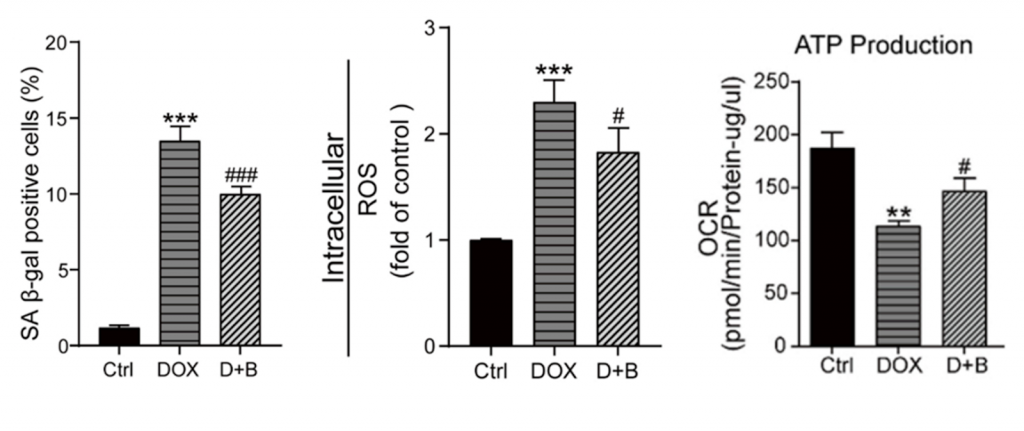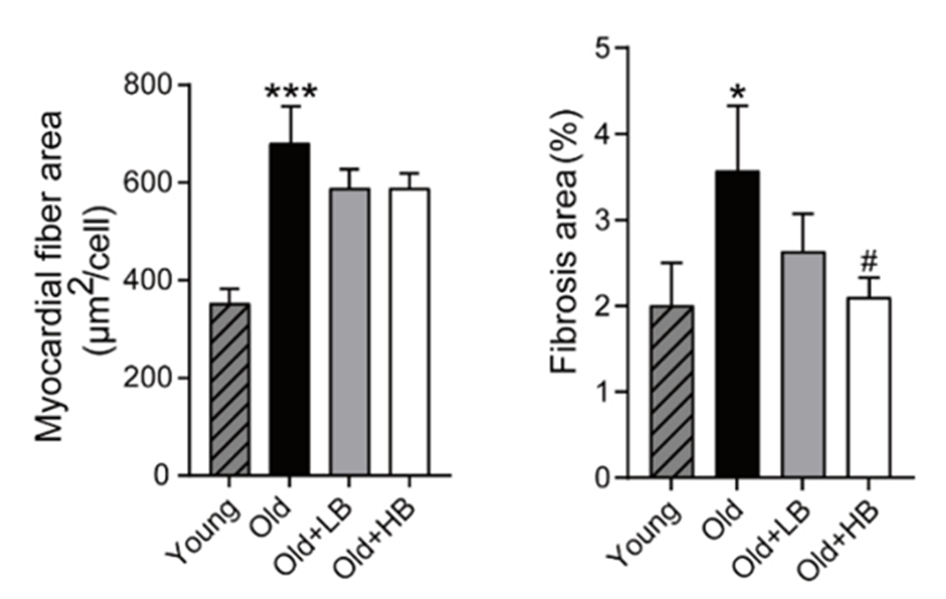Key Points:
- Berberine slows signs of aging in heart cells, including decreasing cellular senescence – a critical state where cells can no longer divide and multiply (proliferate).
- Many beneficial effects of berberine require klotho, an anti-aging protein associated with extending lifespan and mitigating age-related diseases.
- Old rats treated with berberine exhibit less cardiac fibrosis – a key hallmark of cardiac aging characterized by scar tissue buildup.
Humans succumb to cardiovascular disease more than any other age-related disease in the world, making it a primary target in the field of aging. Research shows that cellular senescence is a key driver of cardiac aging and has strong ties to oxidative stress and dysfunctional mitochondria – our cell’s powerhouses. Scientists have previously utilized compounds known as senolytics to selectively target and eliminate senescent cells with the goal of restoring organ function, and recent evidence suggests that an ancient senolytic (berberine) used in traditional Chinese medicine has potential in ameliorating cardiac aging driven by senescence.
Published in the journal Biomedicine & Pharmacotherapy, Wang and colleagues demonstrate the protective effects of berberine on cardiac aging in old rats and heart cells. On top of berberine limiting cardiac fibrosis in old rats, they found that treating senescent heart cells with berberine significantly reduced senescent cell burden, lowered oxidative stress, and boosted mitochondrial function. However, genetically removing the anti-aging protein klotho from these heart cells blocked the beneficial effects of berberine treatment, indicating that berberine functions through klotho regulation.
Berberine Eliminates Senescent Cells and Improves Cardiac Conditions
As we age, our cells accumulate continuous wear and tear that ends up triggering cellular senescence in vital areas linked to longevity, including our mitochondria. When our power generators malfunction, they lack production of ATP – our cell’s energy currency – and they release compounds that promote oxidative stress, which further promotes the formation of new senescent cells.
With this in mind, Wang and colleagues wanted to see if treating senescent heart cells with berberine could mitigate senescent cell buildup and rescue cardiac conditions. Investigators found that treating senescent heart cells with berberine successfully decreased the amount of senescent cells as well as lowered oxidative stress. Additionally, berberine-treated cells displayed greater ATP levels than untreated cells, indicating that berberine restored mitochondrial function. Taken together, the findings demonstrate the senolytic potency of berberine and its ability to improve cardiac conditions.

Berberine Reduces Fibrosis and Limits Cardiac Hypertrophy
Cardiac fibrosis and hypertrophy – heart enlargement – are two detrimental factors that exacerbate cardiac dysfunction. These abnormalities are primarily driven by environmental stress and genetic mutations and are heavily associated with sudden heart failure, especially in aged individuals. That being said, it remains unclear whether these features can be reversed in aging hearts through outside interventions. Wang and colleagues proceeded to examine berberine’s effect on cardiac fibrosis and hypertrophy in old rats and confirmed that berberine treatment successfully attenuated both parameters, demonstrating berberine’s potential to reverse signs of cardiac aging in aged individuals. However, clinical trials are required to support this connection.

Another Senolytic to Protect the Aging Heart
Ongoing research continues to support berberine’s cardioprotective effects in rats and humans, but this is one of the first studies to highlight a potential mechanism through which berberine acts on. Here, investigators confirm that berberine functions through klotho regulation and exerts its cardioprotective effects, in part, through senescent cell elimination. What makes this finding exciting is that it opens the door for other senolytic compounds, like resveratrol, to potentially treat heart issues linked to senescence. Also, given that senescent cells populate various organs of the body, it’s possible that berberine can target multiple aging pathways simultaneously with the goal of prolonging tissue longevity.